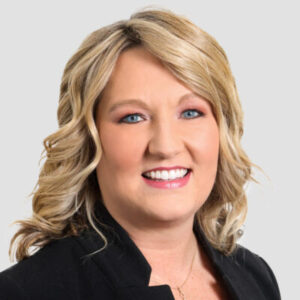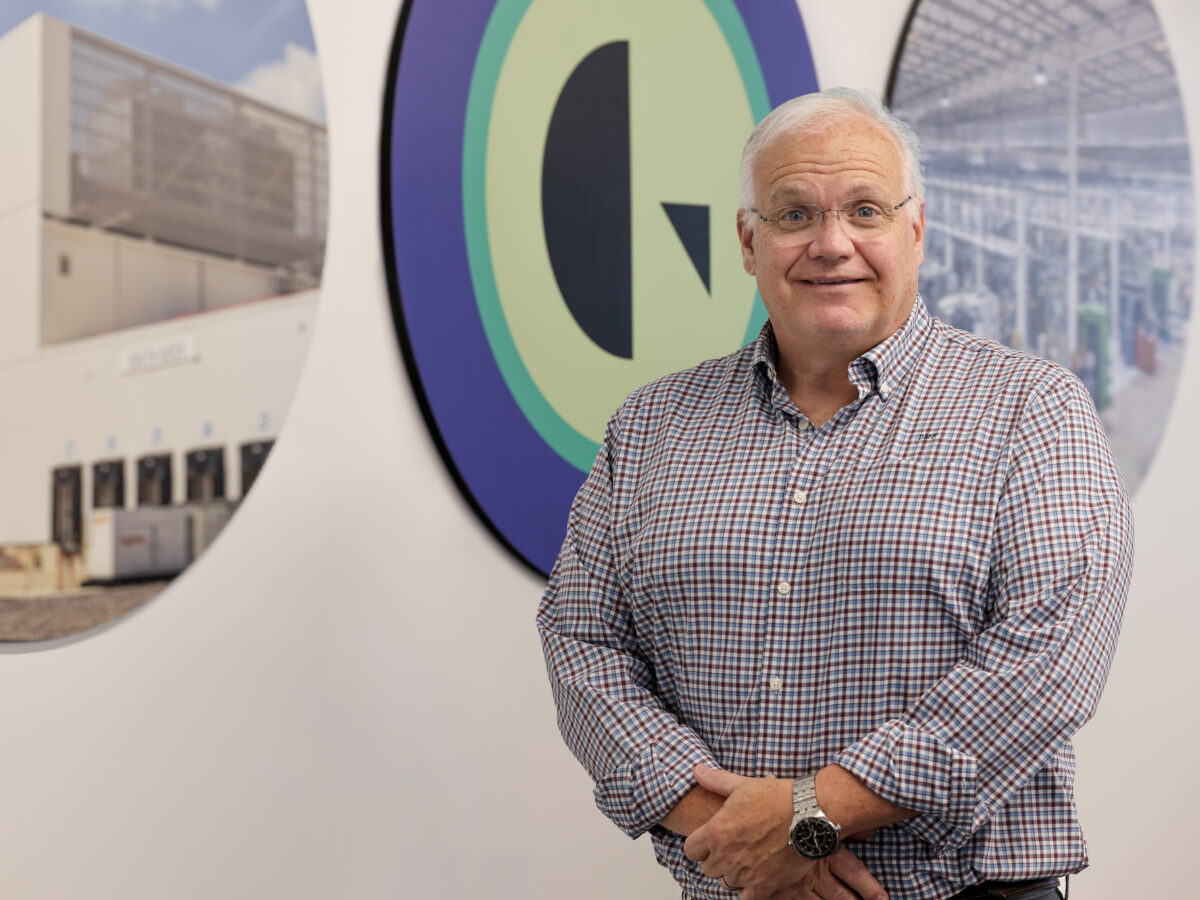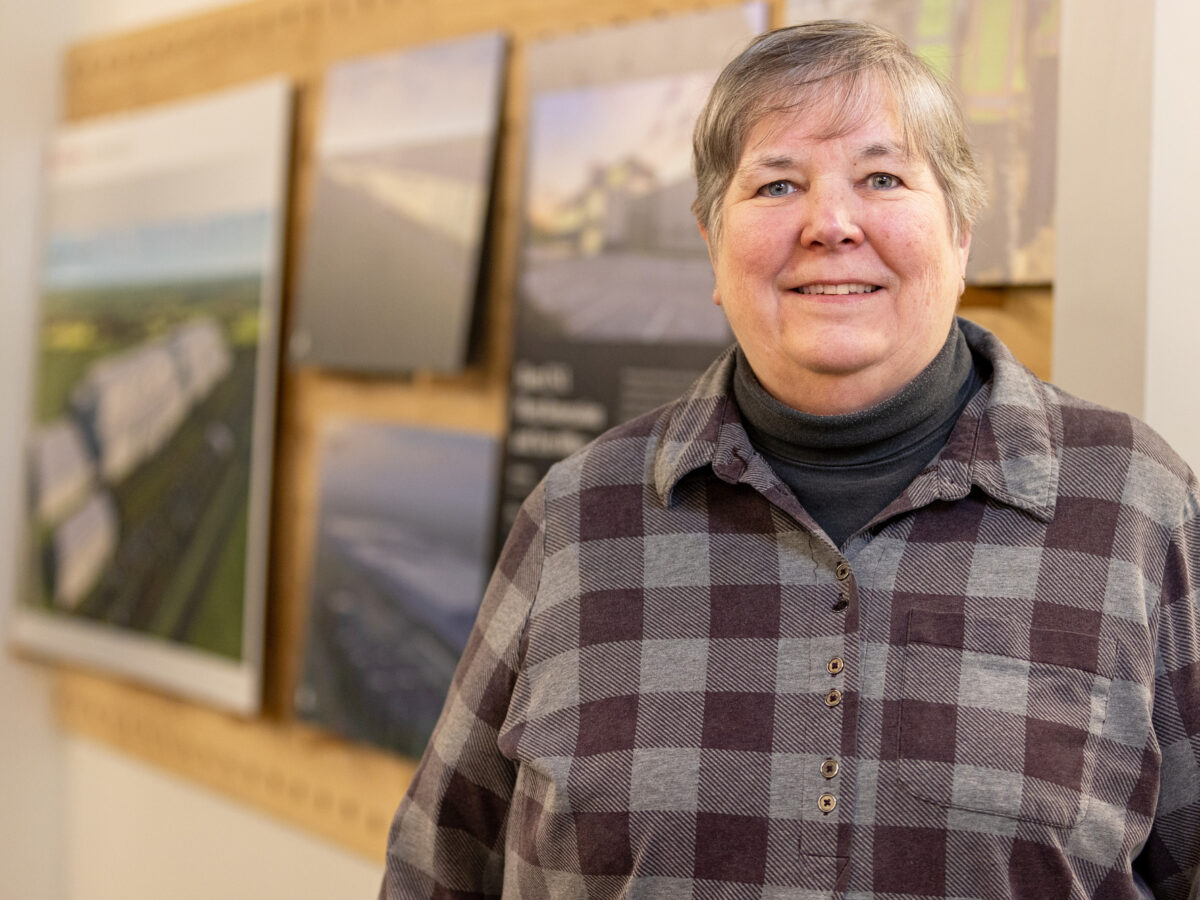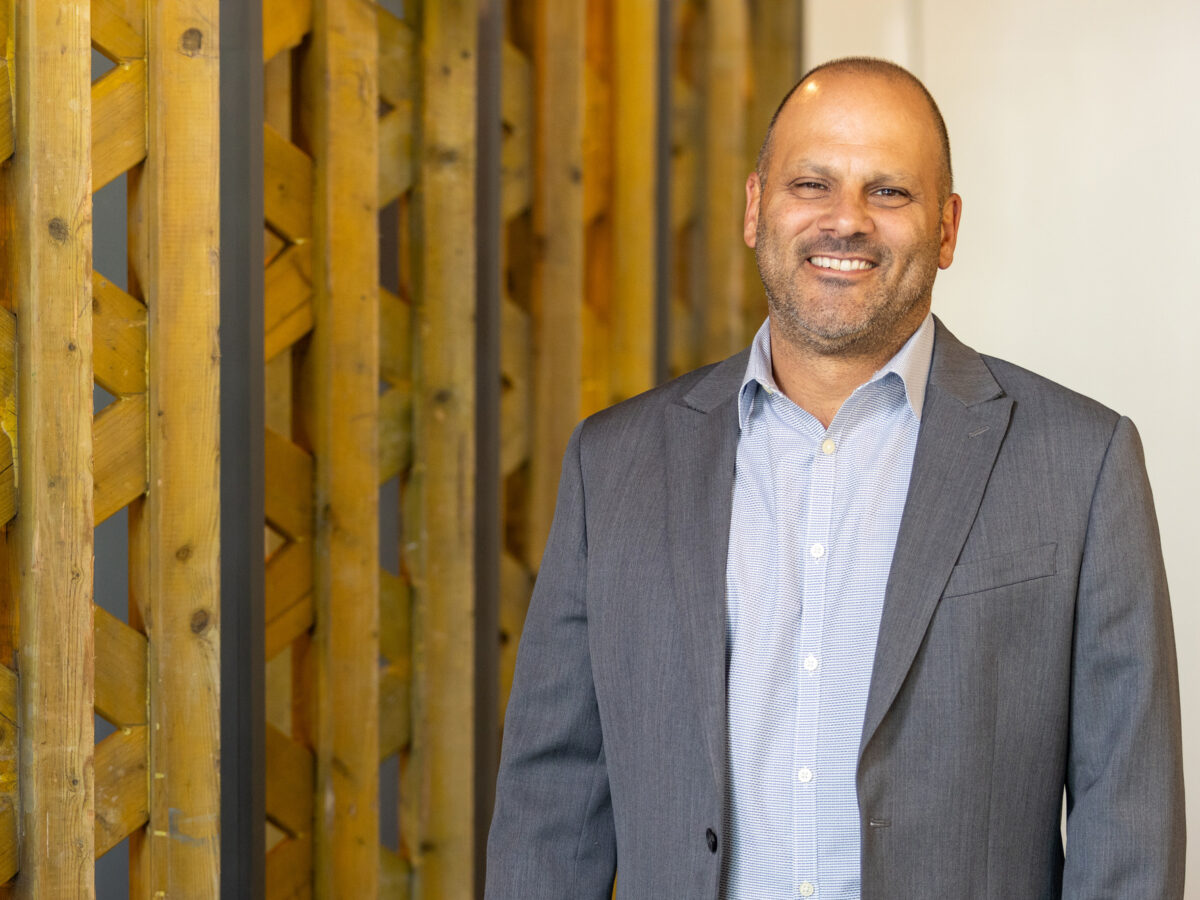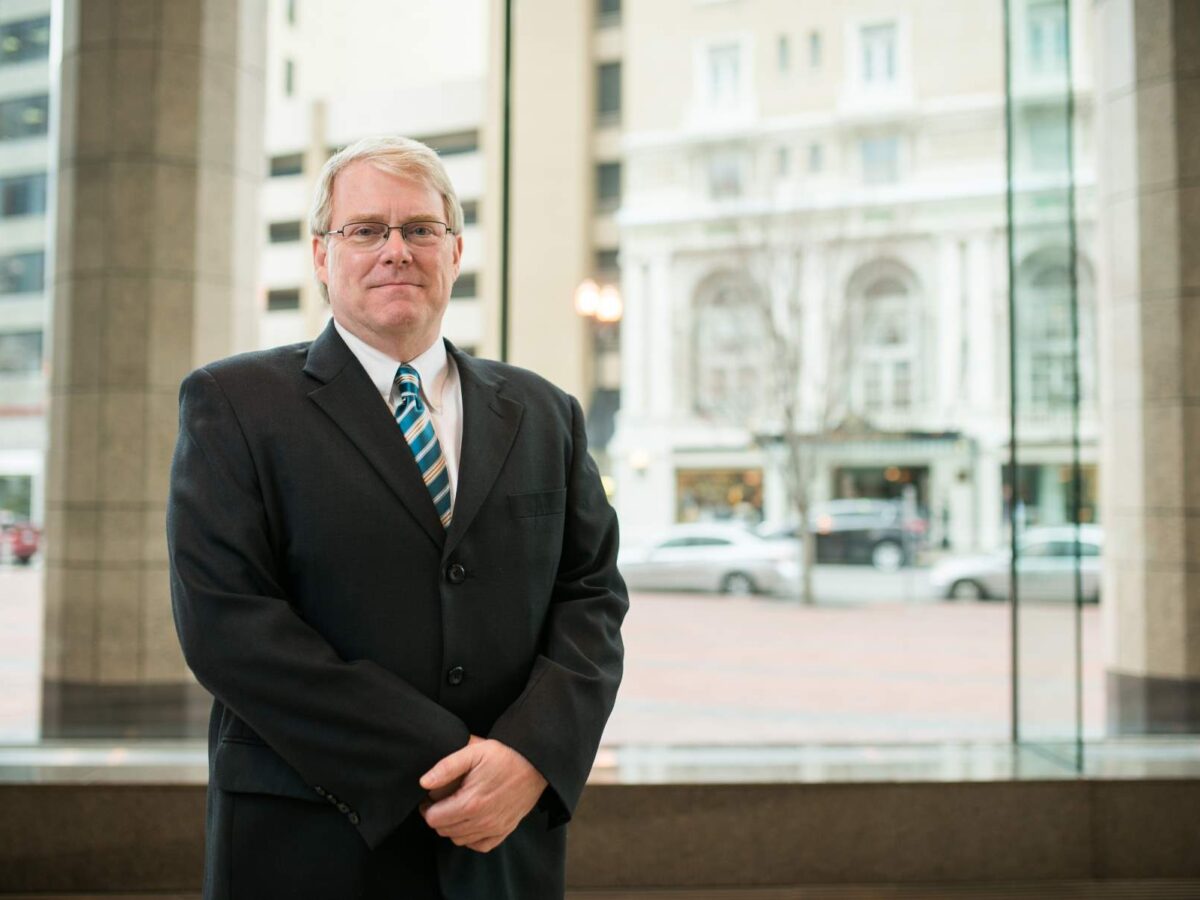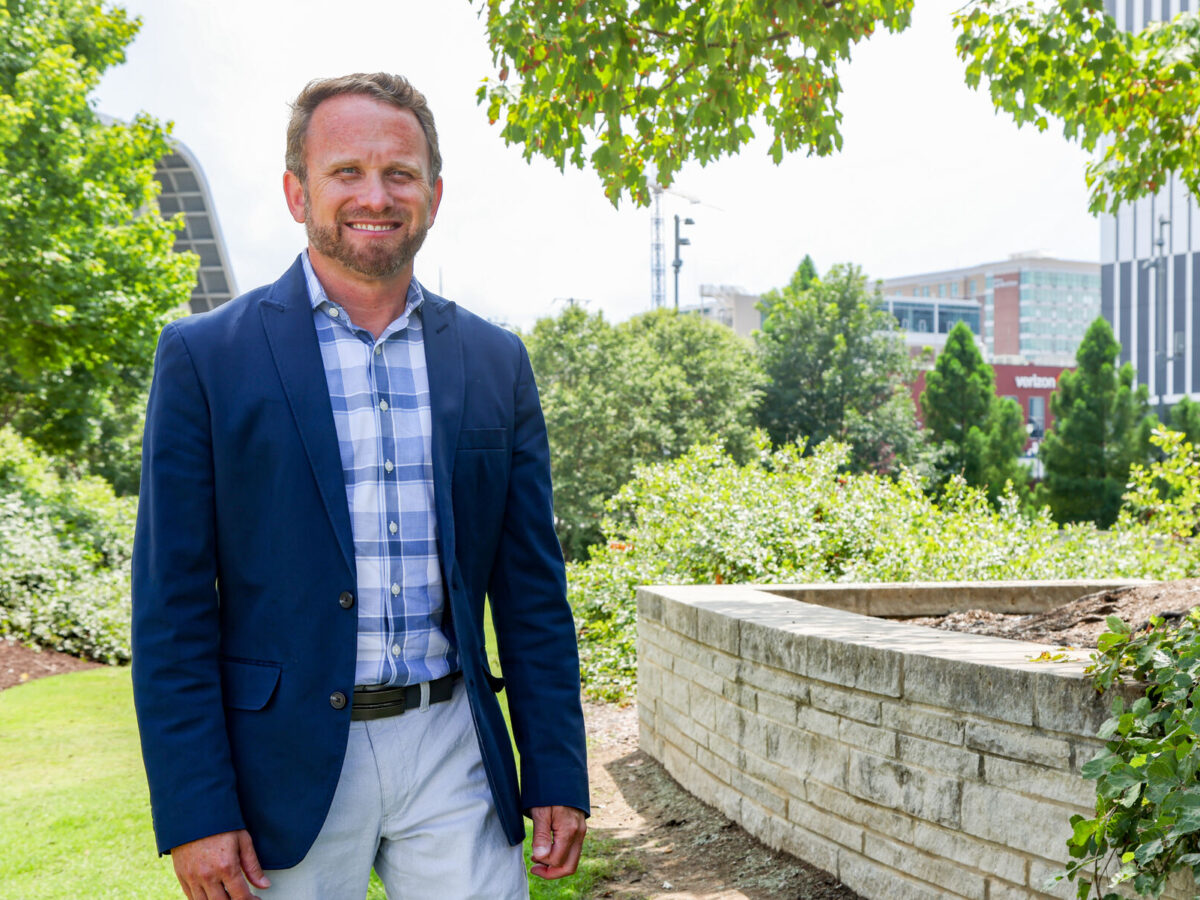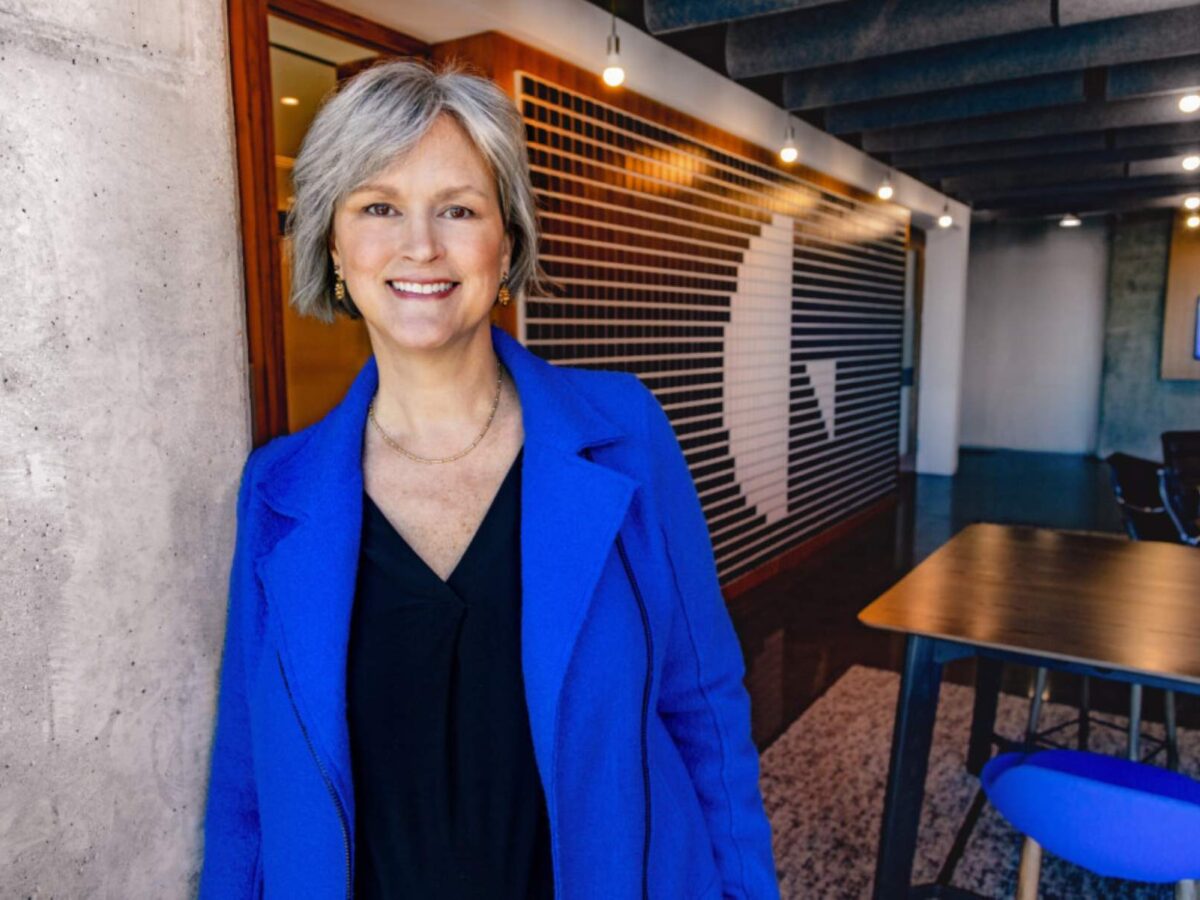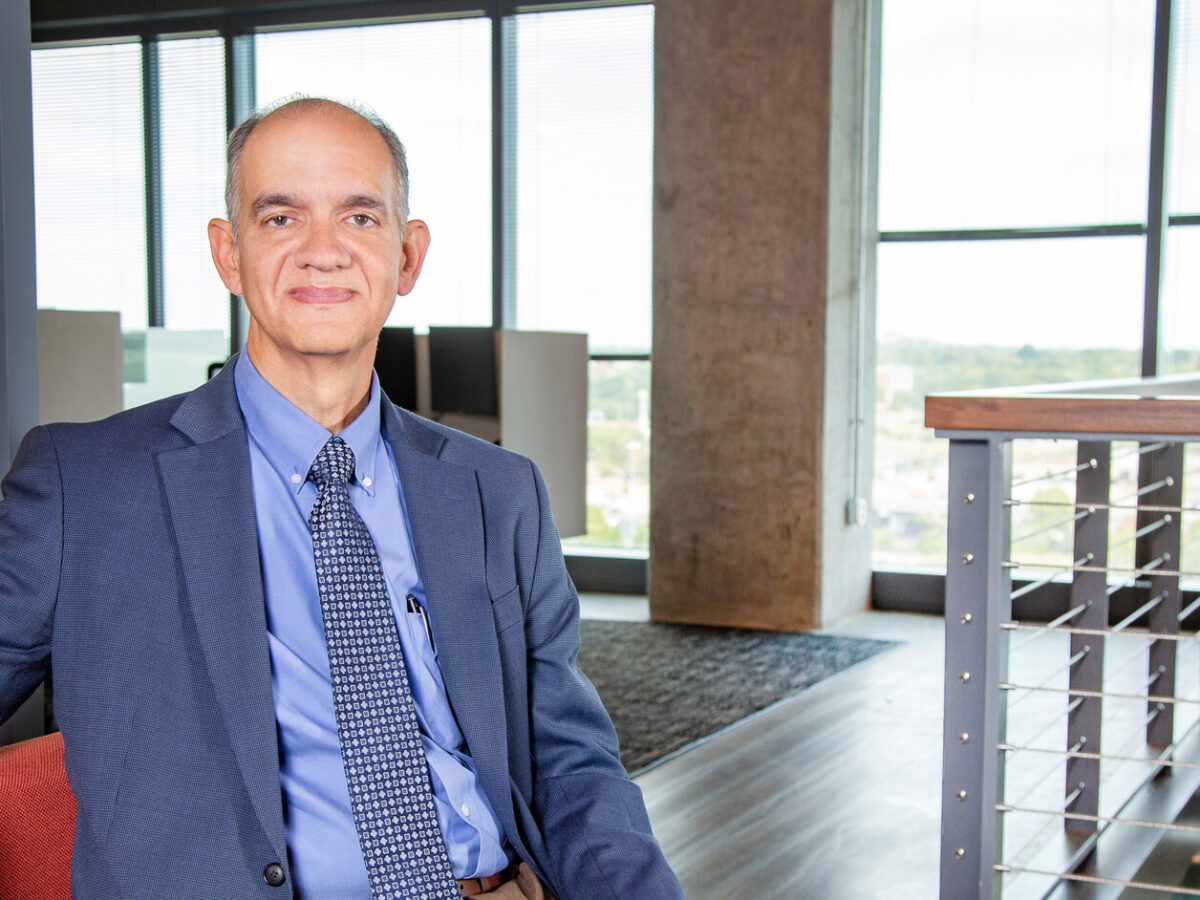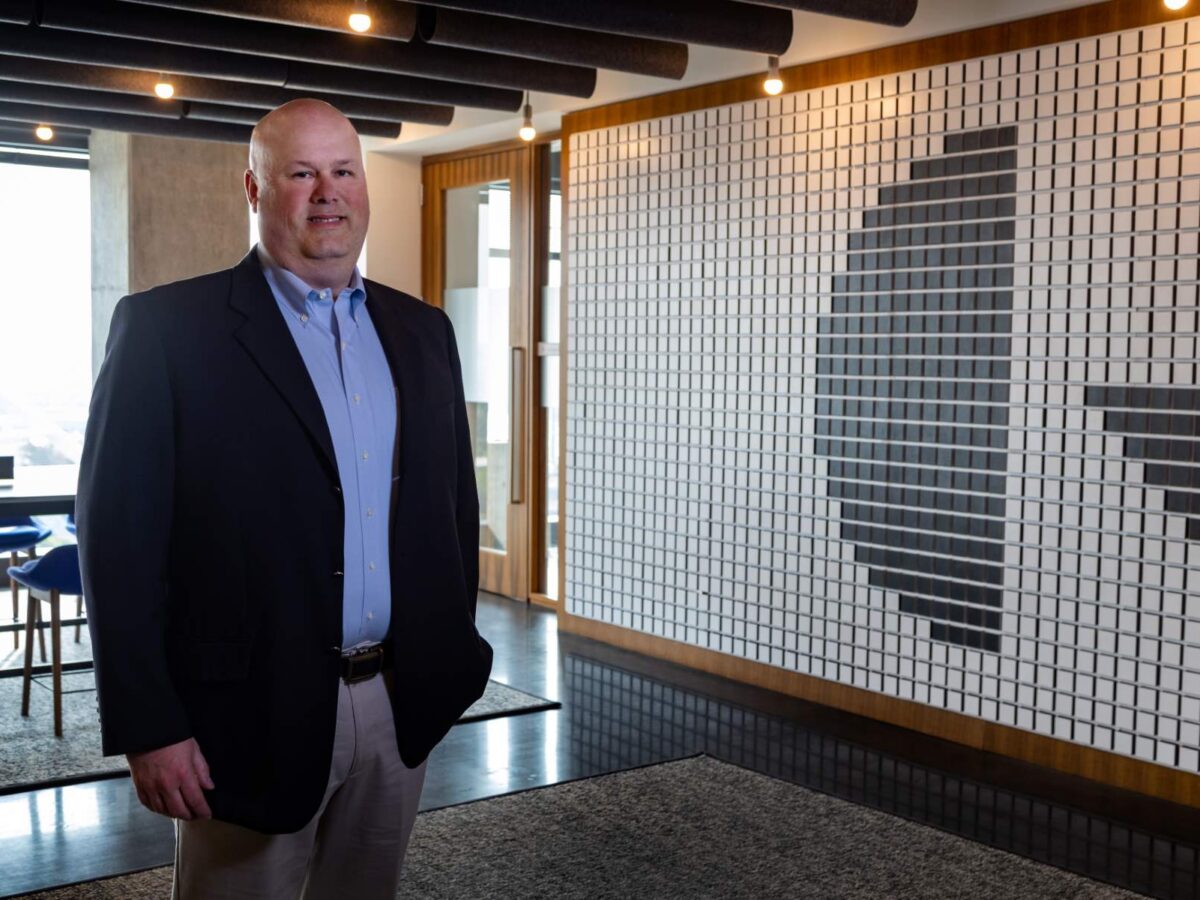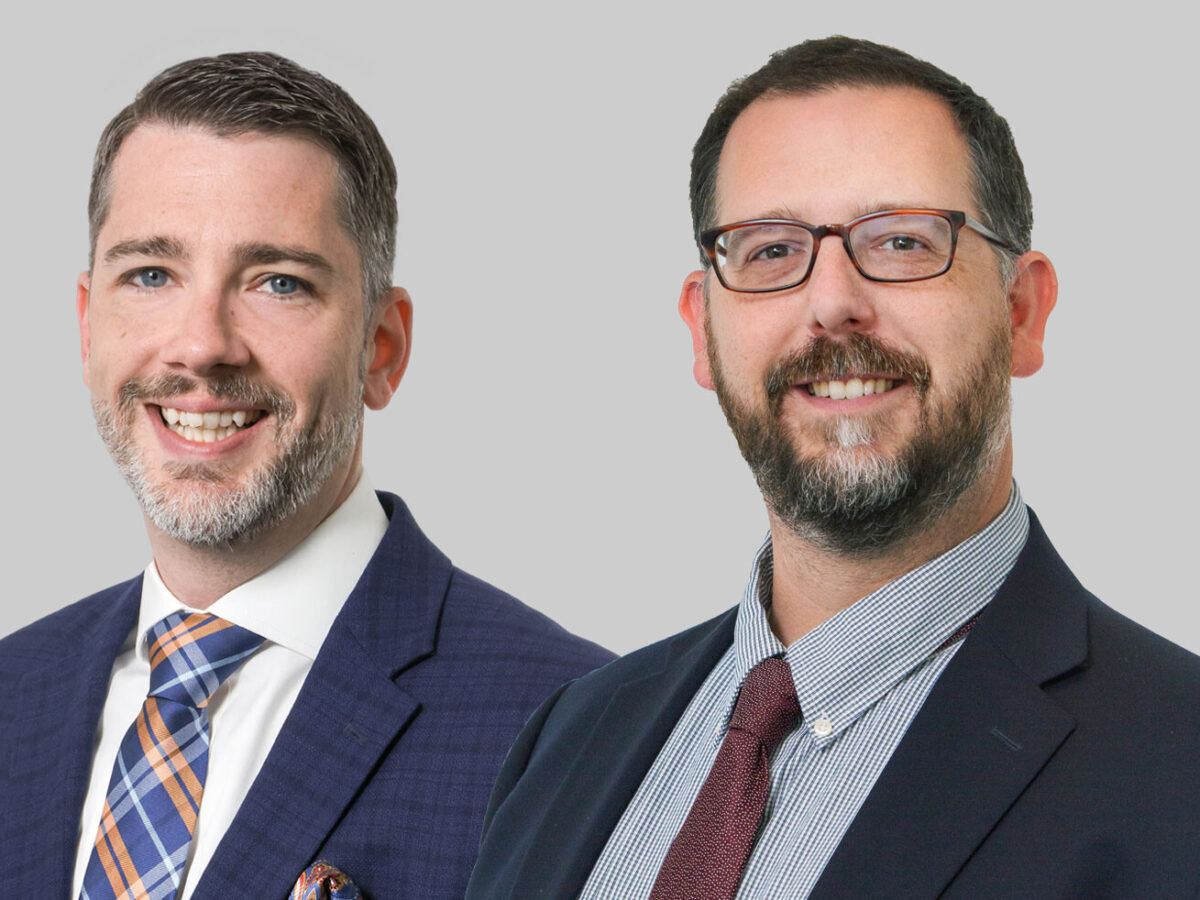November is National Family Caregivers Month—a time dedicated to honoring and acknowledging family caregivers nationwide. It also represents an opportunity to shed light on the challenges faced by caregivers, provide education to communities, and bolster support for their crucial roles.
In celebration of National Family Caregivers Month, we sat down with Michelle Wright, Gresham Smith’s Industrial market vice president and an active member of the firm’s Parent/Caregiver Employee Resource Network (ERN), to learn more about her personal journey as both a parent and a caregiver. Her story is all the more remarkable, given her personal experience as a breast cancer survivor.
You were the mother of a 9-year-old daughter and a 13-year-old son when you were diagnosed with breast cancer in June 2013. How did you approach explaining your diagnosis to them in a way that would prepare them for the challenging journey ahead?
Michelle Wright: I was on a family vacation when I found out I had breast cancer. We were only on Day Two of the trip, and I made the decision that I wasn’t going to ruin our time together worrying about the “what ifs.” I was going into unknown territory and with no answers—just a diagnosis. So, my first instinct was to protect my kids as they were still fairly young. At some point, however, I realized that Lexi and Landon had enough emotional intelligence to know that something wasn’t right and that I couldn’t hide big, real-world problems from them.
I made the decision that once I had facts, and not just a bunch of “what-ifs,” I was going to share my diagnosis with them and explain things in simple terms to begin preparing them for my journey—our journey. And I’m so glad I did because they were about to see the mother they knew go from being a strong, powerful person to someone who couldn’t feed or shower herself, or even brush her hair following a double mastectomy; although I didn’t know all of that was on the horizon when I was first diagnosed.
“I realized that Lexi and Landon had enough emotional intelligence to know that something wasn’t right, and that I couldn’t hide big, real-world problems from them.”
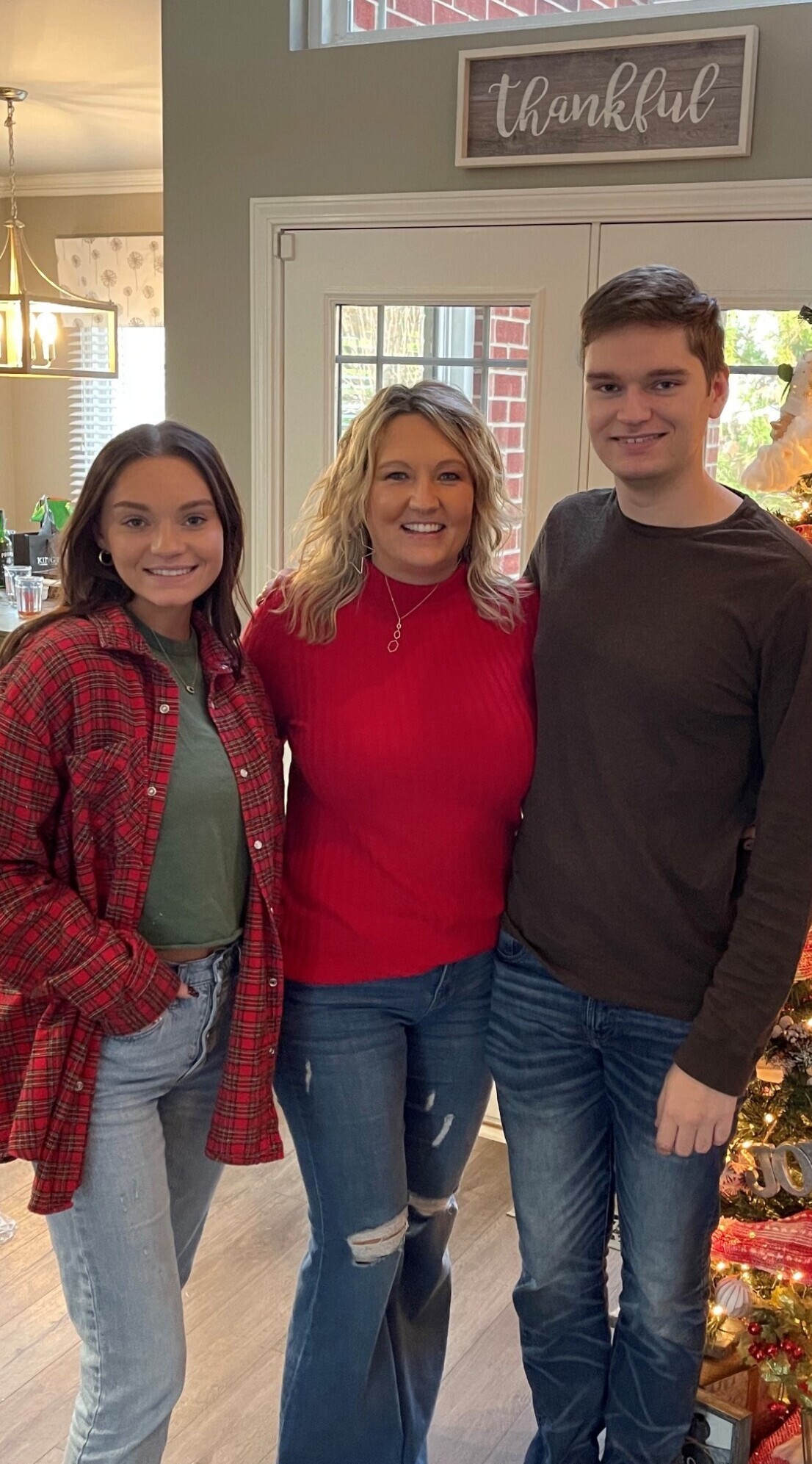
How did you help Lexi and Landon to cope?
Michelle: By engaging them in my care and finding new ways to let them in. When I couldn’t figure out how to hug them—because you can’t hug at full force, or even at all, when you’re recovering from such an invasive surgery—Lexi and I created “pinky” hugs where we’d embrace each other’s pinky fingers. Landon and I came up with a “toe-tap.” And that’s how I hugged my kids each day before they went to school. And since every step from the couch to the bathroom hurt, Landon got creative and figured out that he could sit me in an office chair and wheel me from the couch to the bathroom as opposed to using a wheelchair, which we didn’t have.
Instead of saying don’t let the kids see me because I’m having a really hard time, I chose to let my children in so they didn’t feel like they were always having to peek around the corner and see things that they didn’t understand. Still, engaging my kids meant exposing them to all my physical vulnerabilities, which were many at that time. On a routine basis, I asked them for suggestions if they saw me struggle, or whether they had any questions about anything I was going through.
Although I let them know I was struggling, I would say to them that times like this only make us appreciate the good times even more. And, perhaps most importantly, I’d reinforce to them that what I was going through was temporary. And it’s good they were at an age where I could have that dialogue with them.
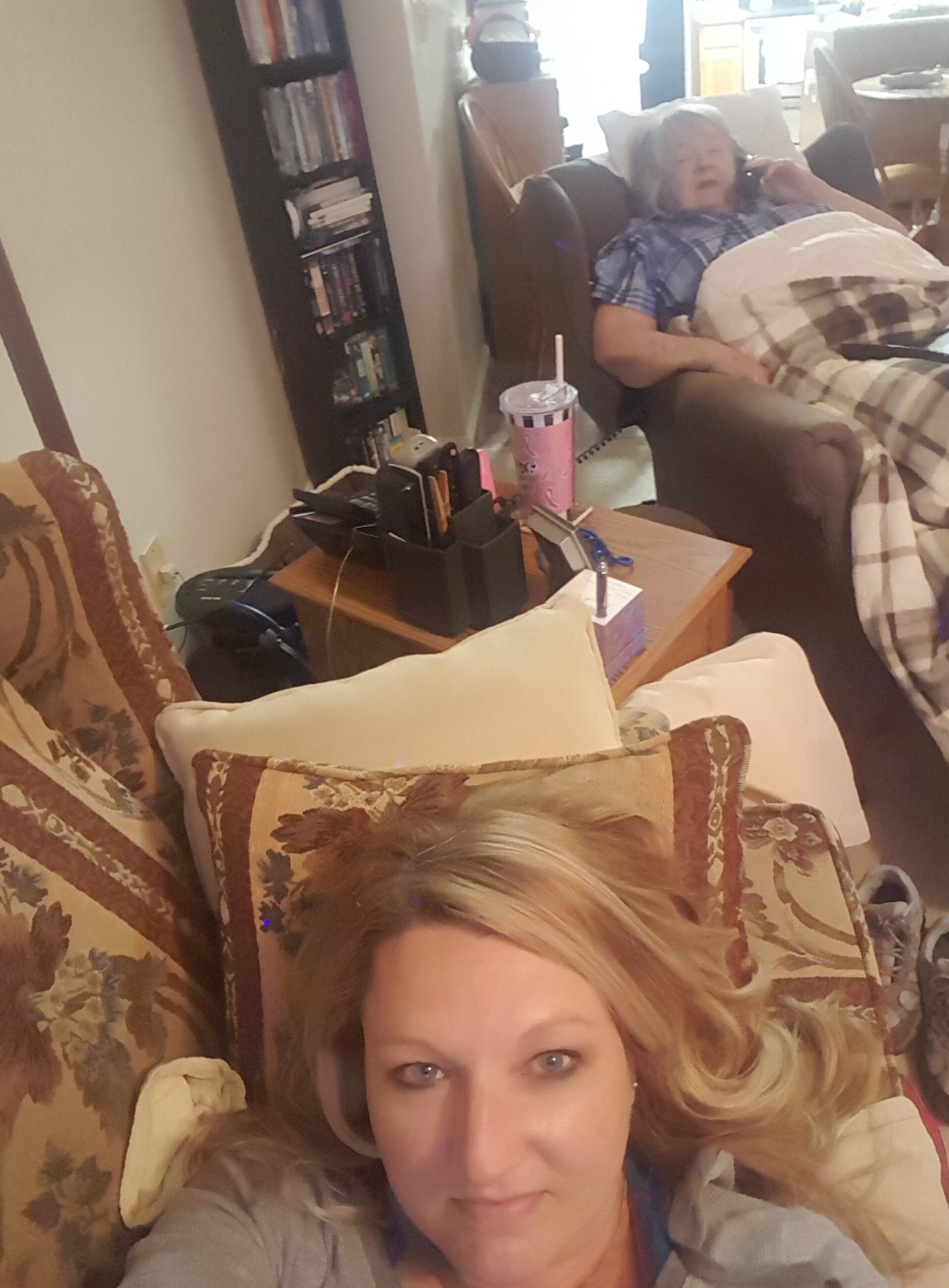
What challenges did you face as a long-distance caregiver for your mother when she was also diagnosed with breast cancer, and what was it like transitioning from being a breast cancer patient to a caregiver for your mom?
Michelle: When my mom was going through breast cancer, she lived five hours away from me in Northern Kentucky. This made the caregiver experience very different from my own, where I was receiving localized care. Although Mom was able to come and stay with us for several weeks during my breast cancer journey, I could only be with her for a week during hers. We lost my dad to cancer in 2008, so it was just us. I always worried about what was happening with her when I had to go home, but she had a good support network of friends that got her to her appointments and radiation treatments.
The things you worry about are quite different when you’re caring for a loved one from afar, like their everyday tasks and activities, or making sure they’re receiving the appropriate medical care. The fear of not being readily available in the case of an emergency was also a big worry. But we made it work through video calls and by having a good support network on her end.
Transitioning from being a breast cancer patient to a caregiver for my mother happened several years after my own diagnosis. It was the opposite of how things usually go. My mom always walked me through everything in life with her wisdom. This time, I became the child walking my mom through breast cancer, being the strong one and the adviser. Fortunately, her treatment was less extensive than mine, requiring a lumpectomy and radiation rather than a mastectomy. It was a complete role reversal and a very different dynamic, supporting her through her own medical journey.
“Being a caregiver can often feel lonely and isolating, but having a supportive network to turn to can make all the difference.”
Tell us about the importance of networks like Gresham Smith’s Parent/Caregiver ERN in providing support to individuals like yourself who find themselves both giving and receiving care at various points in their lives.
Michelle: Having a supportive network like the Parent/Caregiver ERN is crucial for individuals facing similar challenges as it provides a chance to share experiences while learning from one another. These networks not only offer a sense of community and access to resources, but can also raise awareness and advocate for policies that support caregivers and their loved ones.
Being a caregiver can often feel lonely and isolating, but having a supportive network to turn to can make all the difference. That’s why I’m so grateful for Gresham Smith’s Parent/Caregiver group, which provides support to our staff, as we will all give or receive care at some point in our lives. That said, it’s crucial to find the right group that truly resonates with you—whether it’s within your church, community organizations, friends or family. You may be surprised where you find your source of strength and hope.
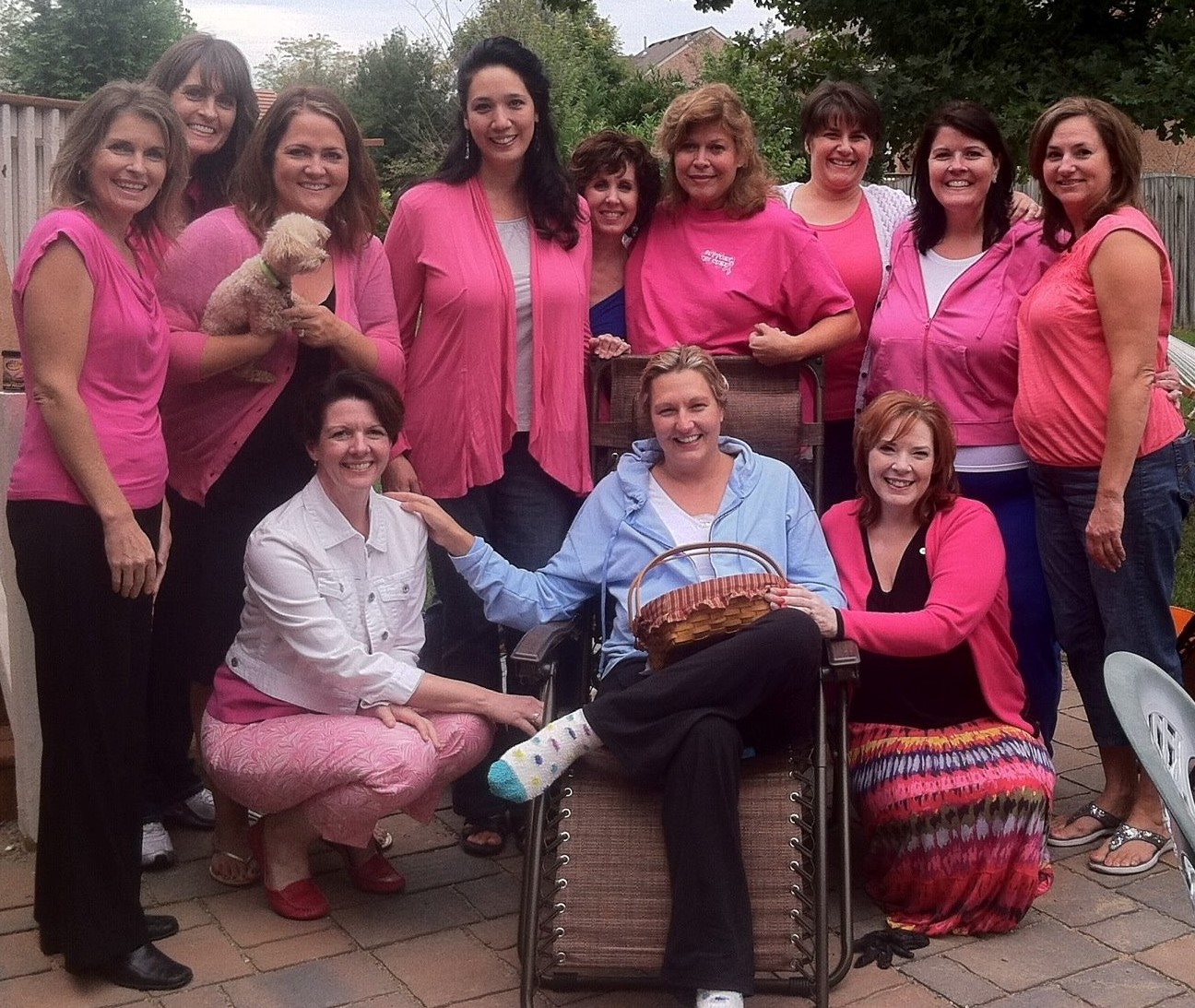
What advice or insights would you share with those in similar roles or facing similar challenges in their lives, based on your experience as a breast cancer survivor, parent, and a caregiver to your mother?
Michelle: First and foremost, it’s important to prioritize self-care and seek support from family and friends as well as professionals. Don’t be afraid to ask for help and delegate tasks when necessary. It’s also important to stay informed and advocate for yourself or your loved ones in medical and caregiving situations. Remember that this journey is uniquely yours. So, take things one day at a time and find moments of joy and gratitude in the middle of the challenges. Above all, never give up hope. Believe in your strength and resilience, as well as in the support of those around you.

